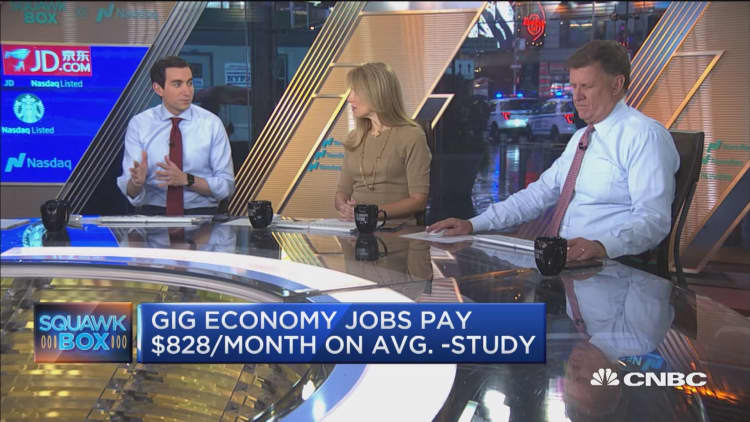
UnitedHealthcare's negotiations with the nation's largest provider of emergency room doctors has reached an impasse.
The insurer is warning hospitals it may drop Envision Healthcare from its network starting in January if the two can't reach an agreement before then, according to a letter sent to more than 250 hospitals Friday.
"You know better than most how Envision's rates are driving up the cost of health care for the people we all serve," Dan Rosenthal, president of UnitedHealthcare Networks, said in the letter, which was obtained by CNBC. UnitedHealthcare has been in negotiations with Envision for a year without success, he said.
A spokesperson for Envision Healthcare says the firm has been negotiating in good faith with UnitedHealth and criticized the insurer for reaching out to hospitals.
"There were never any problems until now, when United demanded massive cuts to allow us to stay in-network. We have offered United a solution that helps with the affordability of healthcare, and yet United is making egregious demands that will force all of our physicians out of network," said Kim Warth, vice president for communications at Envision, in a statement.
"Unfortunately, United has been sending aggressive letters to our hospital partners filled with half-truths and inaccuracies. They've elected to use data for one group in one market and have presented it as the single source of truth. This is misleading and designed to fit their narrative rather than the reality," Warth said.
UnitedHealth Group's insurance division first threatened to cut Envision from its network services last spring over what the insurer said were overly high rates. If no agreement is reached, the move would impact more than 1 million of United's members across the nation.
Because emergency room physicians and other specialists contract with health insurers separately from hospitals, the result can be that the doctors at an in-network hospital are actually out-of-network on an insurer plan.
UnitedHealthcare spokesman Stephen Shivinsky said Envision was a "dominant player" among emergency physician networks and that the insurer would like to continue working with them to find a compromise.
Citing a study from Yale University researchers, UnitedHealthcare said Envision's emergency room rates were twice as high as those of other emergency physician staffing providers, and in some cases when the staffing firm took over emergency care from in-network hospital physicians costs tripled.
One of the authors of the study, titled "Surprise! Out-of-Network Billing for Emergency Care in the United States," says it's a difficult pricing problem to correct, because emergency room doctors have an incentive to charge high out-of-network rates.
"This is actually a pretty fundamental market failure," said Zachary Cooper, an associate professor of health and economics at Yale University. "One of the issues is that if you go to an emergency room you're choosing a hospital and you're not choosing a physician."
Sky-high prices on surprise out-of-network ER bills have become a hot-button issue for consumers and for legislators. A number of states have taken aim to end the practice. Last week, a bipartisan group of U.S. senators drafted legislation to make sure patients are not forced to pay higher out-of-network rates when they go to an in-network hospital.
UnitedHealth said if it fails to renew its contract with Envision it will set up a hotline to help patients deal with potential out-of-network charges from the ER providers. A spokesperson said negotiations will continue until year-end. But in the meantime, the notice could put hospitals in the middle — having to decide whether to maintain their own contracts with Envision or explore other providers who would be covered in-network.
Envision agreed to be acquired by private equity investors at KKR for $5.6 billion, not including debt. Shareholders voted to approve the deal earlier this month.
"Our goal is to have in-network relationships with all of our payor partners, so that patients don't have to worry about surprise bills caused by surprise gaps in coverage," said Warth, "and we believe United should share that common goal instead of forcing a situation where patients may be required to pay more."


